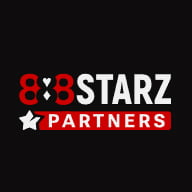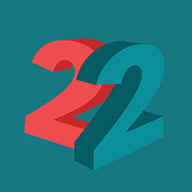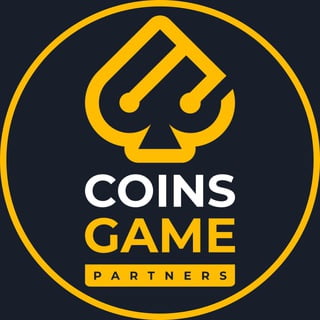- Information
- iGambling
- Blask
- prev
- next
Gambling regulation
-
Online casino:Regulated
-
Online sports betting:Regulated
-
Gambling in detail:
Population
- Population: 57564296 people.
- Official Language: English, Swahili
- HDI: 0,601
- Salary: $384
- Poverty rate: 91.3%
- Gini: 38.7%
- The believing population: 94%
- Main religion: Christianity (84.8%)
- Second religion: Islam (9.7%)
Harmful habits
- Alcohol: 1.7 litres/year
- Smoking: 11.1%
Internet
- Internet users: 16.7%
- Mobile Internet: 90.4%
- Landline Internet: 8.7%
- Internet speed: 16.9 Mbps
- Country Top Level Domain: .KE
General information about the country
-
Country name:Kenya
-
Code (2-digit):KE
-
Continent:Africa
-
Country level:Tier 3
-
Capital:Nairobi
-
Country area:582650 sq km.
-
Telephone code:254
-
Currency (code):Kenyan shilling (KES)
Geographical features of the country
Administrative division into regions
Province (8): Eastern, Western, Nairobi, Nyanza, Coastal, Rift Valley, North Eastern, Central.
Features of the country
The modern territory of the country was partially or fully occupied by the following states: Portuguese Empire, British Empire (now Great Britain).
Kenya has access to the following lakes: Victoria, Rudolph (Turkana), Naivasha, Baringo.
Kenya owns the islands: Pate, Manda, Lamu.
Mountains on the territory of the country: Kenya, Elgon, Satima, Kinangop, Nakugen, Mtelo, Nyiro, Longonot, Poror, Lamwiya, Olkaria, Suswa, Silali, Menengai, Marsabit, Paka.
Volcanoes present in the territory include: Teleki.
Famous caves in the territory: Grote de Levitan.
Gambling regulation
-
Online casinos:Regulated
-
Online sports betting:Regulated
Read more about regulation
According to the Betting Control and Licensing Board (BCLB), over 80 per cent of gambling in Kenya is done online and since the gambling industry mainly exists online, this has facilitated the active penetration of the market by offshore operators.
The BCLB has admitted that it cannot yet effectively tackle the increasing shadow market as it needs more funding and an update of outdated legislation for iGaming to effectively monitor and regulate the sector. It is known that the latest innovation in the country's gambling laws was the increase of taxes for operators.
Fight against illegals
From 2022, the government is fighting operators without a license. Fines and jail terms are envisaged.
Also, in May 2025, the regulator banned gambling advertising, including TV and radio, outdoor advertising, digital platforms and social media, and sponsorship of sporting events.
Top brands in the country
Top 20 iGaming brands (October 2024):
- Betika (5,460,000)
- SportPesa (1,440,000)
- MozzartBet (406,000)
- Bangbet (233,000)
- betPawa (178,000)
- SportyBet (122 000)
- Betlion (119,000)
- PariPesa (73 000)
- 1xBet (36 000)
- Bet365 (25,000)
- 22Bet (25,000)
- Win-win (18,000)
- Betway (13,000)
- BetWinner (9,600)
- Megapari (8,700)
- Betsafe (8,200)
- Melbet (7,000)
- 1win (6,500)
- 888Bet (6,400)
- Linebet (6,000)
(search volume in brackets)
Top payment systems
- M-Pesa
- T-Kash
- Equitel Money
- Orange Money.
M-Pesa is the most popular mobile money transfer service in the country. It also allows users to make deposits at retail outlets, from where the funds can be transferred to BK and casinos
Online Gambling in the country
Kenya is one of the most promising and technologically advanced online gambling markets in Africa. With a population of around 55 million and 64.9% mobile internet penetration, the country has become the third largest market in the region after South Africa and Nigeria.
Key figures
- $831 million market valuation in 2025
- 88% of bets already in 2019 were made from mobile devices
- 122 mobile subscriptions per 100 people
Population
The country has a population of about 60 million, with an average age of 20 years - the country has a high birth rate and a large young population. The overall literacy rate (ability to read and write) among young people (15 to 24 years old) is 85.9%
Religion: Christianity - practised by about 85% of the population.
Major cities: Nairobi (capital), Mombasa, Nakuru, Riuru, Eldoret.
Currency: Kenya Shilling (KES).
Gambling in Kenya is predominantly sportsbetting, targeting a young audience.
- Popular payment methods: M-Pesa is the most common deposit and withdrawal method
- Average profile of CA: the majority of players are men between 18 and 35 years old. 37% bet weekly 18% bet daily
- Playing sessions: short but frequent, often bet during work or in transportation.
What most often bet on
- English Premier League
- Champions League
- La Liga
- Kenyan Premier League
Financial opportunities
More than 63% of the population lives below the poverty line. Also 14% is in extreme poverty. The average salary is around $384
Mentality
Kenya is a multi-ethnic society with over 40 ethnic groups. Each ethnic group follows its own traditions. For example, many people in the country still believe in shamans and spirits
The official language is English and the national language is Swahili. In the cities people mostly speak English or Kiswahili, in rural areas indigenous languages prevail
Kenyans practice traditional values of humility, caring for their neighbours and maintaining kinship ties. In general, Kenyan culture is very communal in nature
Status of gambling
iGaming is legal in the country and is regulated by the Betting Control and Licensing Board (BCLB). However, the authorities are planning to dissolve the board and create a new organisation called the Gambling Regulatory Authority to better control the sector and combat ludomania among youngsters.
Legislation and taxes
The sphere is regulated by the Betting, Lotteries, and Gaming Act (1966) and the new Gambling Control Bill (2023).
- Foreign operators: license fee from $42,000 + deposit of $1.55 million
- Mandatory localization: 30% of the company is owned by Kenyan citizens
- Ban on bets below KES 20 (~$0.15)
- GGR tax - 15%, payable monthly
Internet accessibility
Kenya has a very high internet penetration rate for the African continent at 40.8 per cent. Also in 2023, mobile internet penetration is almost 32.7%
As of 2024, Kenya has about 58.3 million mobile connections. The proportion of the population with mobile internet access is projected to increase steadily between 2024 and 2029 at an annual growth rate of 9.8%
Popular web applications: Facebook, WhatsApp, TikTok, Instagram. The number of Facebook users is steadily growing: by 2027 it will reach almost 20 million (age of users from 18 to 34 years old).
WhatsApp is considered the second largest service. In 2023 there were 7.9 million users, and the estimated growth rate between 2024 and 2028 will be almost 80 per cent.
Gambling industry
The gambling market in Kenya is dominated by sports betting (football, cricket, rugby, running, basketball and tennis), with around 40% of bettors placing online bets daily. In gambling, users favour poker, blackjack, roulette and slots.
It is important to say that Kenya leads the region in the number of young players. More than 84% of young people (18-25 years old) spend much more on gambling (often young people prioritise gambling over studying at university or looking for a job, hoping for a quick and easy income) than their peers in other African countries (in Nigeria, 78% of the young population participates in iGaming, and in South Africa - about 74%).
Kenya has high tax rates for operators: 15% tax on gross gaming revenue, 30% corporate income tax, 16% income tax, 20% tax on each winning bet and 12.5% excise tax. It is also stipulated that 30 per cent of the shares of any gambling business registered in the country must be owned by Kenyan citizens. Moreover, the business must transact with a Kenyan bank.
Such ‘punitive taxation’ is unlikely to attract new companies to the country's legal sector: already more than 10 sports betting operators have left the Kenyan market this year.
In addition, the country's outdated laws are doing their unintentional part to grow the black market. Key gambling adjustments were based on the Betting, Lotteries and Gambling Act of 1966, which does not address the online sector.
Gambling affiliate programs with local licence
Gambling affiliate programmes that accept traffic from this country
- Blask data from: 06/03/2025
- Population: 58,246,378 people.
- Population growth rate: +2.06% per year.
- Internet users: 15,370,000 people.
-
Urbanization:
Urbanization — 29.5%
-
Languages in the country:
Swahili — 100%
English — 30%
-
Age structure:
0-14 years — 35.8%
15-64 years — 60.9%
65+ years — 3.4% -
Median age:
Total — 21.2
Male — 21.1
Female — 21.4 -
Literacy:
Total — 82.6%
Male — 85.5%
Female — 79.8%
-
Real GDP:
2021 — $284.129 billion
2022 — $297.9 billion
2023 — $314.063 billion -
Real GDP growth:
2021 — 7.59%
2022 — 4.85%
2023 — 5.43% -
Real GDP per capita:
2021 — $5,400
2022 — $5,500
2023 — $5,700
Blask Index
Top brands in the country
| Brands | BAP* |
|---|---|
| Betika | 37,1 |
| GameMania | 14,9 |
| Odibets | 13,4 |
| MozzartBet | 6,7 |
| betPawa | 5,9 |
| SportPesa | 5,1 |
- The data for this section was provided by the analytical service Blask.com. Currently, the service's database contains information on 62 countries and more than 2,500 brands. You can view all available countries with Blask statistics at this link.
- Share
- prev
- next















